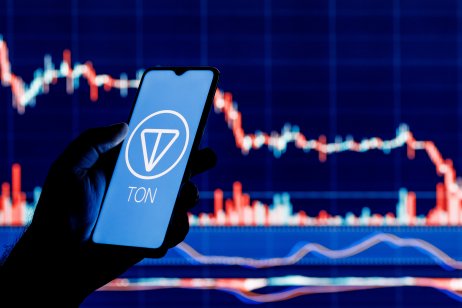
As Toncoin gains popularity, ensuring the safety of user transactions and compliance with evolving regulatory frameworks are critical. This article explores Toncoin’s security measures, regulatory challenges, and its commitment to safeguarding user assets. Ensure that you are not overlooking the security of your digital assets. Use immediaterevolution.com for 100% security in Bitcoin trading.
Toncoin’s Security Measures
Toncoin has implemented robust security measures to ensure the safety and integrity of its platform and user transactions. By employing advanced encryption techniques and secure storage solutions, Toncoin minimizes the risk of unauthorized access and data breaches.
One of the primary security measures adopted by Toncoin is the encryption of transactions. Each transaction made on the Toncoin network is encrypted using state-of-the-art cryptographic algorithms. This encryption ensures that sensitive user information and transaction details remain confidential and protected from potential threats.
In addition to encryption, Toncoin emphasizes the importance of secure storage of user assets. Toncoin employs secure wallet technology that utilizes advanced cryptographic techniques to safeguard user funds. This ensures that Toncoin holdings are stored in a secure and tamper-proof manner, minimizing the risk of theft or unauthorized access.
To further enhance security, Toncoin implements multi-factor authentication (MFA) for user accounts. MFA adds an extra layer of protection by requiring users to provide multiple forms of verification, such as a password and a unique authentication code sent to their registered devices. This significantly reduces the risk of unauthorized access to Toncoin accounts, even in the event of a compromised password.
Protecting Toncoin Users: Best Practices and Safety Tips
One essential best practice for Toncoin users is to be vigilant about the security of their wallets and private keys. Toncoin advises users to store their private keys in a secure offline location, such as a hardware wallet or a paper wallet stored in a safe place. This reduces the risk of online threats, such as hacking or phishing attempts, that could compromise their private keys and lead to unauthorized access to their Toncoin funds.
Regularly updating software and security patches is another crucial safety tip for Toncoin users. Toncoin releases updates to its software to address potential vulnerabilities and improve security. By promptly updating their Toncoin software, users can benefit from the latest security enhancements and protect themselves against known security risks.
Educating users about potential security risks is an integral part of protecting Toncoin users. Toncoin provides resources and guidelines to help users identify and mitigate common security threats. By raising awareness about phishing attempts, malware, and other fraudulent activities, Toncoin aims to empower users with the knowledge to recognize and avoid potential risks.
Toncoin also advises users to exercise caution when interacting with third-party services or applications. Users should ensure that they are using trusted and verified platforms or wallets when conducting Toncoin transactions. Verifying the authenticity and security measures of third-party services can help minimize the risk of falling victim to scams or fraudulent schemes.
Additionally, Toncoin recommends enabling two-factor authentication (2FA) whenever possible. 2FA adds an extra layer of security by requiring users to provide a secondary form of verification, typically a unique code generated on their mobile devices, in addition to their passwords. This adds an additional barrier against unauthorized access to Toncoin accounts.
Toncoin’s Future: Security and Regulatory Challenges
One significant security challenge is the constant emergence of new hacking techniques and cyber threats. Toncoin must stay proactive in identifying potential vulnerabilities and implementing robust security measures to safeguard against these evolving risks. Regular security audits, penetration testing, and ongoing collaboration with cybersecurity experts will be crucial in maintaining a secure environment for Toncoin users.
In addition to security challenges, Toncoin also navigates a complex regulatory landscape. As governments and regulatory bodies work to establish frameworks for cryptocurrencies, Toncoin must stay updated and compliant with evolving regulations. Adapting to new compliance requirements and collaborating with regulatory authorities is essential for Toncoin’s long-term sustainability and legitimacy within the financial ecosystem.
The global nature of the cryptocurrency market poses an additional regulatory challenge for Toncoin. Different jurisdictions have varying approaches to cryptocurrency regulations, which can create a fragmented regulatory landscape. Toncoin needs to carefully navigate these differences, ensuring compliance in the regions where it operates while maintaining a global reach and user base.
Furthermore, regulatory trends have the potential to impact Toncoin’s operations and user experience. New regulations may impose stricter know-your-customer (KYC) and anti-money laundering (AML) requirements, affecting user onboarding and transaction processes. Toncoin must proactively adapt to these trends, implementing robust compliance measures while minimizing disruptions to its user base.
Conclusion
By implementing robust security measures, collaborating with experts, and staying informed about regulatory trends, Toncoin aims to navigate the evolving cryptocurrency landscape successfully. Through its continuous efforts, Toncoin seeks to build trust and foster a sustainable future for the security and regulation of digital currencies.











